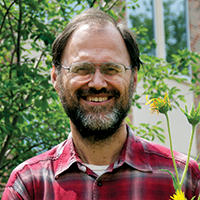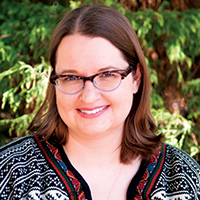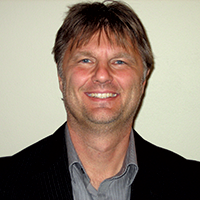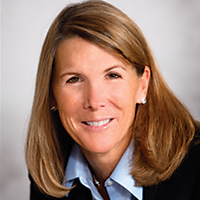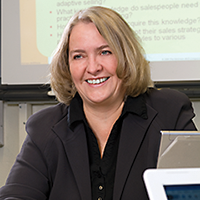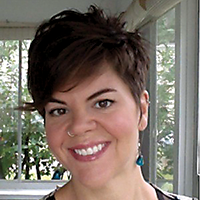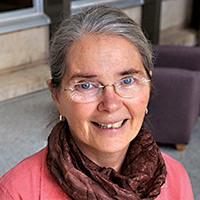Two Professors Receive Fulbright Scholar Awards
Bruno Borsari, WSU Professor of Biology, received a Fulbright U.S. Scholar Award to teach and complete research in Panama from August 2014 to May 2015. Borsari will teach courses in agroecology, soil biology and poultry science at the Universidad Santa Maria La Antigua (USMA) in Chitré, Panama. He will also complete research on water conservation, agroforestry and sustainable agriculture through the development of an “ad hoc” curriculum and field demonstrations for the benefit of the farmers (campesinos) of the Azuero peninsula, the main agricultural region of Panama. Borsari plans to develop an academic exchange between USMA and WSU and design a travel study to Panama for WSU students interested in sustainable food production and environmental science/studies.
Jennifer Chernega, WSU Assistant Professor of Sociology, will teach about the sociology of race and ethnicity at the University of Oslo in 2014-2015. Through work with students, Chernega will explore the ways that race is framed differently in Norway than in the United States. She and her students will investigate how structural issues, such as housing patterns and subsequent neighborhood effects, impact racial and ethnic dynamics. The Fulbright Program is the flagship international educational exchange program sponsored by the U.S. government and is designed to increase mutual understanding between the people of the United States and the people of other countries. Participants are chosen for the academic merit of their project proposal and leadership potential.
Zeller Receives Athletic Trainer Award
Winona State University Professor Brian Zeller received a National Athletic Trainers’ Association 2014 Athletic Trainer Service Award for his contributions to the athletic training profession as a volunteer at the local and state levels. Recipients are involved in professional associations, community organizations, grassroots public relations efforts and service as a volunteer athletic trainer. Candidates must have held the certified athletic trainer credential, conferred by the Board of Certification, and have been an NATA member, both for at least 15 years. Zeller is professor and chair of the Health, Exercise & Rehabilitative Sciences Department and the clinical education coordinator of the Athletic Training Program at WSU.
Business Professor Recognized for Excellence
Winona State University faculty member Diane May was named one of the nation’s top legal studies educators, earning the prestigious Charles M. Hewitt Master Teacher Award presented annually by the Academy of Legal Studies in Business (ALSB), the international organization of professors who teach law in business. May, an associate professor of business law in the College of Business, was announced as one of four finalists this spring to present her Master Teacher Proposal, “Using Scaffolding to Improve Student Learning in Legal Environment Courses,” at the ALSB annual conference this summer in Seattle. May won the top award, selected by a vote of more than 150 peers following the Master Teacher presentations. The award recognizes faculty who lead the way in incorporating new subject matter, cultural shifts and advances in pedagogy and technology into their classes. May also received the Hoeber Memorial Award for Excellence in Research from the Journal of Legal Studies in Education (JLSE) for her article on the same topic. The JLSE is a peer-reviewed academic legal journal that closely examines pedagogical issues within business legal studies. The Hoeber Memorial Award is presented annually by the JLSE editorial staff.
Collins Appointed to International Board
Marianne Collins, Associate Professor of Marketing in the College of Business, has been appointed to serve on the Sales & Marketing Executives International, Inc. (SMEI) board. Her appointment began July 1, 2014. Collins is a Harvard graduate and is a Certified Sales Executive.
Herndon Tackles War on Obesity
Is the obesity epidemic overemphasized? Does a singular focus on obesity take away from a focus on health, regardless of body size? This is the argument explored by Winona State University Associate Professor April Herndon in her recently released book “Fat Blame: How the War on Obesity Victimizes Women and Children.” Herndon, who teaches in the English Department and for the Women’s Gender & Sexuality Studies program, tackles the war on obesity as a battle against women and children, especially those marginalized by race and class. Herndon explores widespread anti-obesity sentiment, the role of discrimination in the war on obesity, and myths surrounding “empowerment” of the victims through policies and interventions. The book looks closely at the stories of real people whose lives have been drastically altered by interventions that are thought to be for their own good.
Strecher Publishes New Book
Winona State University Professor of Global Studies Matthew Strecher’s new book “The Forbidden Worlds of Haruki Murakami” explores the mysteries of the wildly imaginative work of author Haruki Murakami. In “The Forbidden Worlds of Haruki Murakami,” readers will find a map to the strange realm of Murakami’s most bizarre scenes and characters. Exposing the psychological and mythical underpinnings of this other world, Strecher shows how these considerations color Murakami’s depictions of the individual and collective soul. The book covers all of Murakami’s work and concludes with the first full-length reading of the writer’s newest novel, “Colorless Tsukuru Tazaki and His Years of Pilgrimage.”
Ecuadorian U.S. Embassy Sponsors D’Amico’s Work
The Cultural Affairs Office at the U.S. Embassy in Ecuador sponsored the launch of Winona State University Global Studies Professor Linda D’Amico’s book, “Otavalan Women, Ethnicity and Globalization.” Dr. D’Amico’s book was recently published in Spanish as “Etnicidad y Globalizacion: las otaveleñas en casa y en el mundo,” by Facultad de Ciencias Scociales (FLASCO), an Ecuadorian graduate school in social sciences. While doing fieldwork in Peguche, Ecuador, D’Amico befriended Rosa Lema, who had worked with anthropologist Elsie Clews Parsons. Lema, an indigenous woman whose efforts to bring change to her village and country, affords a unique view on the rise of interculturalism as an indigenous ideology. Gender is at the center of Dr. D’Amico’s analysis as she looks beyond the overlapping lives of these two women, both innovators and adept at crossing cultural boundaries, to explore the interrelationship between gender, ethnicity and globalization.

